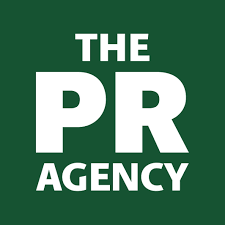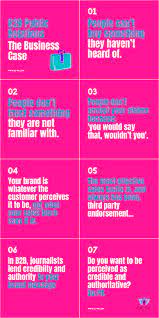Thought Leadership Development: Shaping the Future of Industry
In today’s fast-paced and competitive business landscape, establishing oneself as a thought leader has become increasingly important. Thought leadership goes beyond being an expert in a particular field; it involves actively sharing valuable insights, innovative ideas, and forward-thinking perspectives that shape the future of an industry.
So, what exactly is thought leadership development? It is a strategic approach to building credibility and influence within a specific domain. By positioning oneself as a trusted authority, thought leaders not only gain recognition but also have the power to drive change and inspire others.
Thought leadership development begins with deep knowledge and expertise in a particular field. It requires continuous learning and staying up-to-date with the latest trends, emerging technologies, and industry advancements. This knowledge forms the foundation upon which thought leaders build their reputation.
However, being knowledgeable alone is not enough to be considered a thought leader. Effective communication plays a crucial role in developing thought leadership. Thought leaders must articulate their ideas clearly and concisely, making complex concepts accessible to both experts and non-experts alike.
The next step in thought leadership development involves creating valuable content that showcases expertise and innovative thinking. This can take various forms such as articles, blog posts, whitepapers, videos, podcasts, or speaking engagements. By consistently sharing high-quality content across different platforms, thought leaders establish themselves as go-to resources for industry insights.
Building a strong personal brand is another essential aspect of thought leadership development. Thought leaders should have a distinct voice and unique perspective that sets them apart from others in their field. They should be authentic in their communication style while maintaining professionalism.
Collaboration is also crucial for thought leadership development. Engaging with other industry experts through networking events or online communities allows for knowledge sharing and cross-pollination of ideas. Collaborative efforts can lead to partnerships, joint ventures, or even co-authoring research papers – further enhancing one’s influence within the industry.
Thought leaders are not limited to sharing their insights within their own organizations or networks. They actively seek opportunities to contribute to industry publications, participate in panel discussions, or speak at conferences. By sharing their expertise on a broader platform, thought leaders can reach a wider audience and make a significant impact on the industry as a whole.
Thought leadership development is an ongoing journey. It requires dedication, consistency, and adaptability. As industries evolve and new challenges arise, thought leaders must continue to expand their knowledge base and adapt their thinking accordingly. By staying ahead of the curve, thought leaders can shape the future of their industry and be at the forefront of innovation.
In conclusion, thought leadership development is not just about gaining recognition; it is about making a meaningful impact on an industry. By combining deep expertise with effective communication, valuable content creation, personal branding, collaboration, and continuous learning, thought leaders have the power to shape the future and drive positive change within their respective domains. So, embrace your expertise and embark on a journey of thought leadership development – your insights may just transform your industry for the better.
9 Tips for Thought Leadership Development in the UK
- Identify your niche
- Develop relationships
- Demonstrate expertise
- Leverage social media
- Engage in conversations
- Publish research papers/white papers/books
- Speak at conferences/events
- Offer consulting services
- Stay up-to-date
Identify your niche
Thought Leadership Development: The Power of Identifying Your Niche
In the world of thought leadership, one key tip stands out among the rest: identify your niche. Defining and honing in on a specific area of expertise is crucial for establishing yourself as a trusted authority and making a lasting impact.
Why is identifying your niche so important? Well, in today’s information-saturated world, generalists often get lost in the noise. By focusing on a particular niche, you can differentiate yourself from others and position yourself as an expert in that specific field.
When you identify your niche, you become the go-to resource for insights and knowledge within that domain. People will seek you out for advice, guidance, and unique perspectives on topics that fall within your area of expertise. This level of specialization not only boosts your credibility but also helps you build a loyal following.
To identify your niche effectively, start by assessing your own skills, experiences, and passions. What are you truly passionate about? What unique knowledge or expertise do you possess? By aligning your niche with your genuine interests and strengths, you’ll be more motivated to delve deeper into the subject matter and continuously expand your knowledge.
Next, consider the market demand for your chosen niche. Is there an audience actively seeking information or solutions related to this area? Conduct thorough research to understand the needs and pain points of individuals or businesses within that specific industry or topic. This will help ensure that there is a viable audience eager to engage with your content.
Once you’ve identified your niche and confirmed its market potential, it’s time to craft a compelling personal brand around it. Develop a clear positioning statement that highlights what makes you unique within this space. Communicate how your expertise can benefit others and solve their challenges. This branding exercise will help establish you as an authority figure in your chosen niche.
Remember that identifying a niche doesn’t mean limiting yourself to just one topic forever. As you grow and evolve, your niche may expand or change. The key is to start with a focused area and gradually build your authority within it. Over time, you can explore related topics or sub-niches to further expand your influence.
In conclusion, identifying your niche is a fundamental step in thought leadership development. By focusing on a specific area of expertise, you can differentiate yourself from the crowd and establish yourself as an authority figure. Embrace your passions, conduct market research, and craft a compelling personal brand to make a lasting impact within your chosen niche. So, go ahead and carve out your space in the thought leadership landscape – the opportunities for growth and influence await!
Develop relationships
Thought Leadership Development: The Power of Relationship Building
When it comes to thought leadership development, one tip stands out among the rest – developing relationships. In today’s interconnected world, building strong connections and fostering meaningful relationships is essential for establishing oneself as a thought leader in any industry.
Relationship building goes beyond simply networking. It involves creating genuine connections with like-minded professionals, industry experts, and potential collaborators. These relationships serve as a foundation for knowledge sharing, collaboration, and support – all of which are crucial for thought leadership development.
One of the key benefits of relationship building is the opportunity to learn from others. By engaging with individuals who have different perspectives and expertise, thought leaders can expand their knowledge base and gain new insights. These interactions can spark innovative ideas and challenge existing beliefs, leading to personal growth and professional development.
Moreover, developing relationships allows thought leaders to tap into a vast network of resources. By cultivating strong connections with professionals in complementary fields or industries, thought leaders can access valuable information, research findings, or even potential business opportunities. Collaborative efforts between thought leaders can lead to groundbreaking projects or joint ventures that propel both parties forward.
Relationship building also plays a crucial role in establishing credibility and trust within an industry. When others perceive you as someone who values relationships and actively engages with peers, they are more likely to view you as a trusted authority. This trust translates into greater influence as your insights and ideas are given more weight.
In addition to professional benefits, relationship building also offers personal support and encouragement along the thought leadership journey. Being part of a supportive network provides opportunities for mentorship, guidance, and constructive feedback from individuals who understand the challenges faced by thought leaders. This support system can be invaluable during times of uncertainty or when seeking advice on complex issues.
So how does one go about developing relationships for thought leadership? It starts with being proactive and genuinely interested in others’ work. Attend industry events, conferences or join online communities where you can connect with like-minded professionals. Engage in meaningful conversations, ask thoughtful questions, and actively listen to others’ perspectives.
Building relationships also requires nurturing and maintaining connections over time. Regularly reach out to your network, share valuable insights or resources, and offer support whenever possible. Remember that relationship building is a two-way street – be willing to contribute and provide value to others as well.
In conclusion, developing relationships is a vital tip for thought leadership development. By cultivating genuine connections, thought leaders can expand their knowledge, access valuable resources, establish credibility, and find support along their journey. So invest time and effort in building relationships – you never know how these connections may shape your path towards becoming a respected thought leader in your industry.
Demonstrate expertise
Demonstrate Expertise: A Key Element of Thought Leadership Development
In the realm of thought leadership, demonstrating expertise is a critical component that sets individuals apart as trusted authorities in their respective fields. To establish oneself as a thought leader, it is not enough to simply possess knowledge; one must effectively showcase their expertise to gain credibility and influence.
Demonstrating expertise begins with a deep understanding of the subject matter. Thought leaders continuously expand their knowledge base through research, staying up-to-date with industry trends, and immersing themselves in relevant information. This ongoing learning process allows them to stay ahead of the curve and offer valuable insights to their audience.
Thought leaders have a unique ability to distill complex concepts into easily understandable ideas. They can take intricate theories or technical jargon and present them in a way that resonates with both experts and non-experts alike. By effectively communicating complex ideas, thought leaders showcase their expertise and make it accessible to a broader audience.
One effective way to demonstrate expertise is through the creation of high-quality content. Thought leaders produce articles, blog posts, videos, or podcasts that delve into specific topics within their field. This content should be informative, well-researched, and provide actionable insights for readers or listeners. By consistently sharing valuable content, thought leaders establish themselves as go-to resources for industry knowledge.
Another way to demonstrate expertise is by actively engaging with others in the field. Thought leaders participate in discussions on social media platforms or industry forums, offering thoughtful opinions and insights. By sharing their expertise openly and engaging in meaningful conversations, they build relationships with peers and expand their network within the industry.
Public speaking engagements also provide an opportunity for thought leaders to showcase their expertise. Presenting at conferences or participating in panel discussions allows them to share their insights with a live audience. The ability to articulate ideas confidently and persuasively further solidifies their position as an expert in the field.
Collaboration is key in demonstrating expertise as well. Thought leaders actively seek opportunities to collaborate with other experts, whether through co-authoring research papers or participating in joint projects. By working alongside other knowledgeable individuals, thought leaders can showcase their expertise while also learning from others and gaining new perspectives.
Lastly, thought leaders should always strive for excellence in their work. They consistently deliver high-quality outputs, maintaining a standard of excellence that reflects their expertise. Whether it’s through meticulous research, attention to detail, or innovative problem-solving, thought leaders demonstrate their commitment to their craft and establish themselves as trusted authorities.
In conclusion, demonstrating expertise is a fundamental aspect of thought leadership development. By continuously expanding knowledge, effectively communicating complex ideas, creating valuable content, engaging with others in the field, seeking collaboration opportunities, and maintaining a standard of excellence, individuals can establish themselves as thought leaders. Embracing the opportunity to showcase expertise not only enhances personal credibility but also contributes to the overall advancement of the industry.
Leverage Social Media: Unlocking the Power of Thought Leadership
In today’s digital age, social media has become an integral part of our lives. It has transformed the way we connect, share information, and consume content. For aspiring thought leaders, leveraging social media can be a game-changer in their journey towards establishing credibility and influence.
Social media platforms offer a unique opportunity to reach a vast audience and engage with industry peers, potential clients, and followers. By strategically using these platforms, thought leaders can amplify their message and build a strong online presence.
The first step in leveraging social media for thought leadership development is choosing the right platforms. Each platform caters to different demographics and content formats. LinkedIn is often considered the go-to platform for professionals and B2B interactions, while Twitter allows for real-time conversations and quick insights. Instagram and YouTube are ideal for visual content, while Facebook provides a broader reach across various audiences.
Once the platforms are selected, it is essential to create a consistent brand image across all social media channels. This includes having a professional profile picture, writing an engaging bio that highlights expertise, and sharing valuable content that aligns with thought leadership goals. Consistency in messaging and visual aesthetics helps establish trust and recognition among followers.
Thought leaders should aim to provide value through their social media presence. This can be achieved by sharing insightful articles or blog posts, offering practical tips or advice related to their industry, or initiating meaningful discussions on relevant topics. By consistently delivering valuable content, thought leaders position themselves as go-to resources for industry insights.
Engagement is key when leveraging social media for thought leadership development. Responding to comments, participating in discussions, and actively engaging with followers showcases accessibility and fosters meaningful connections. Thought leaders should also seek opportunities to collaborate with other influencers or experts within their field through features like guest posts or joint live sessions – expanding their reach even further.
Another effective strategy is to harness the power of visual content. Videos, infographics, and images tend to grab attention and generate higher engagement rates. Thought leaders can create short videos sharing their insights or visually appealing infographics summarizing complex concepts. This not only helps in capturing the audience’s attention but also makes the content more shareable, increasing its reach.
Lastly, thought leaders should analyze social media metrics to measure the effectiveness of their efforts. Tracking engagement rates, follower growth, and content performance provides valuable insights into what resonates with the audience. By understanding these analytics, thought leaders can refine their social media strategy and deliver even more impactful content.
In conclusion, social media has become an indispensable tool for thought leadership development. By leveraging these platforms effectively, thought leaders can expand their reach, engage with a broader audience, and establish themselves as trusted authorities within their industry. So embrace the power of social media, share your expertise, and unlock new opportunities to shape the future through thought leadership.
Engage in conversations
Engage in Conversations: Unlocking the Power of Thought Leadership
In the realm of thought leadership development, one tip stands out as particularly powerful: engaging in conversations. While sharing valuable content and insights is essential, actively participating in discussions allows thought leaders to connect with their audience on a deeper level and make a lasting impact.
Engaging in conversations opens up a world of possibilities. It enables thought leaders to gain valuable feedback, challenge their own ideas, and explore new perspectives. By listening to others and engaging in meaningful dialogue, thought leaders can refine their thinking and expand their knowledge base.
One way to engage in conversations is through social media platforms. These digital spaces provide an opportunity to connect with a wide range of individuals who share similar interests or work within the same industry. By joining relevant groups or participating in industry-specific chats, thought leaders can contribute to ongoing discussions and establish themselves as trusted voices.
Additionally, attending conferences, seminars, or industry events allows thought leaders to engage in face-to-face conversations with peers, experts, and potential collaborators. These events provide an ideal setting for sharing ideas, exchanging insights, and building relationships that can fuel future collaborations or partnerships.
Engaging in conversations also extends beyond traditional channels. Thought leaders should actively seek out opportunities for guest speaking engagements or panel discussions where they can share their expertise and engage with a live audience. This not only enhances their credibility but also provides a platform for direct interaction and the chance to address questions or concerns.
Furthermore, engaging in conversations should not be limited to one’s immediate network or industry circles. Thought leaders should embrace diversity by seeking out perspectives from different backgrounds or industries. Engaging with individuals outside of one’s comfort zone broadens horizons and fosters innovative thinking by challenging existing beliefs and assumptions.
The power of engaging in conversations lies not only in what is said but also in active listening. Thought leaders should approach these interactions with an open mind, valuing the insights and experiences of others. By actively listening and considering different viewpoints, thought leaders can expand their own understanding and develop a well-rounded perspective.
Engaging in conversations is not just about self-promotion; it is about building meaningful connections, fostering collaboration, and contributing to the collective knowledge of the industry. By actively participating in discussions, thought leaders can establish themselves as approachable and relatable figures who genuinely care about advancing the field.
In conclusion, engaging in conversations is a vital tip for thought leadership development. It allows thought leaders to connect with their audience, gain feedback, challenge their ideas, explore new perspectives, and foster collaboration. By embracing diverse conversations across various platforms and actively listening to others, thought leaders can unlock the true power of thought leadership and make a lasting impact on their industry.
Publish research papers/white papers/books
Publishing research papers, white papers, or books is a powerful tip for thought leadership development. It offers an opportunity to showcase expertise, share valuable insights, and establish oneself as a credible authority in a particular field.
Research papers provide an avenue for in-depth exploration of specific topics. They require rigorous analysis, critical thinking, and the presentation of evidence-based findings. By conducting original research and publishing papers in reputable journals or conferences, thought leaders contribute to the body of knowledge within their industry. This not only enhances their reputation but also positions them as experts who are at the forefront of innovation.
White papers serve as informative guides that address industry challenges or propose solutions to complex problems. They are typically written in a more accessible style than research papers and often include practical recommendations or strategies. Thought leaders can leverage white papers to offer unique perspectives, share best practices, or present thought-provoking ideas that can shape the direction of their industry.
Books are perhaps the most comprehensive form of thought leadership publication. They allow thought leaders to delve deeply into their subject matter and provide a comprehensive overview of their expertise. Books can reach a wider audience and have a lasting impact on readers who seek authoritative guidance or want to gain a deeper understanding of a specific topic.
Publishing research papers, white papers, or books not only establishes credibility but also opens doors for collaboration and networking opportunities. Other professionals within the industry may seek out thought leaders for partnerships, speaking engagements, or consulting opportunities based on the insights shared in these publications.
It is important to note that publishing requires thorough research, strong writing skills, and adherence to academic standards (in the case of research papers). It is advisable to collaborate with peers or seek guidance from mentors who have experience in publishing before embarking on this journey.
In conclusion, publishing research papers, white papers, or books is an effective strategy for thought leadership development. It enables thought leaders to share their expertise with a wider audience while establishing themselves as credible authorities in their field. By contributing to the body of knowledge, thought leaders can shape industry conversations, inspire innovation, and position themselves as go-to resources for valuable insights. So, embrace the power of publication and take your thought leadership journey to new heights.
Speak at conferences/events
Speaking at conferences and events is a powerful tip for anyone looking to enhance their thought leadership development. It provides a unique opportunity to share expertise, connect with industry peers, and establish oneself as an influential voice within a specific field.
When you step on stage as a speaker, you instantly position yourself as an authority in your domain. The audience perceives you as someone with valuable insights and knowledge worth sharing. This visibility helps build credibility and trust, making it easier for others to perceive you as a thought leader.
Speaking engagements also offer a platform to showcase your expertise in front of a targeted audience. Whether it’s a niche conference or a larger industry event, the attendees are typically interested in the subject matter being discussed. By delivering a well-prepared and engaging presentation, you can captivate the audience and leave a lasting impression.
Furthermore, speaking at conferences allows for networking opportunities with fellow professionals in your field. You can connect with like-minded individuals who share similar interests and have valuable perspectives to offer. These interactions can lead to collaborations, partnerships, or even mentorship opportunities that further enhance your thought leadership journey.
Preparing for a speaking engagement requires thorough research and thoughtful content creation. It is important to understand the needs of the audience and tailor your presentation accordingly. By delivering valuable insights, practical tips, or thought-provoking ideas, you can leave the audience inspired and eager to learn more from you.
Additionally, speaking at conferences provides exposure beyond the event itself. Many conferences offer recordings or transcripts of presentations that can be shared online or through social media channels. This allows your message to reach an even wider audience who may not have been present at the event but are interested in the topic.
To maximize the impact of speaking engagements on thought leadership development, it is crucial to actively promote your participation before and after the event. Utilize social media platforms, professional networks, and industry-specific forums to generate buzz around your presentation. Engage with attendees, answer questions, and continue the conversation beyond the stage.
In conclusion, speaking at conferences and events is a valuable tip for thought leadership development. It provides an opportunity to showcase expertise, build credibility, network with industry peers, and extend your reach to a broader audience. By leveraging speaking engagements strategically, you can take significant strides towards establishing yourself as a thought leader in your field. So, embrace the stage and share your knowledge – your voice has the power to shape industry conversations and inspire others.
Offer consulting services
Thought Leadership Development Tip: Offer Consulting Services
When it comes to thought leadership development, one effective strategy is to offer consulting services. By leveraging your expertise and insights, you can provide valuable guidance and support to businesses and individuals seeking innovative solutions and industry knowledge.
Consulting services allow you to directly apply your thought leadership in practical ways. By working closely with clients, you can understand their unique challenges, identify opportunities for growth, and develop tailored strategies that align with their goals.
Through consulting engagements, you have the opportunity to share your expertise on a deeper level. You can provide specific recommendations, offer hands-on assistance in implementing strategies, and guide clients through complex decision-making processes. This level of involvement not only solidifies your position as a trusted authority but also allows you to make a tangible impact on the success of your clients.
Offering consulting services also opens doors for collaborative partnerships. As a consultant, you may have the opportunity to work alongside other industry experts or organizations in joint projects. This collaboration not only expands your network but also enhances the value you bring to clients by leveraging diverse perspectives and experiences.
Furthermore, consulting engagements provide valuable learning experiences for thought leaders. Through direct client interactions, you gain insights into real-world challenges faced by businesses across different sectors. This exposure helps refine your own thinking and keeps you informed about emerging trends and best practices.
To effectively offer consulting services as part of your thought leadership strategy, it’s important to establish a clear value proposition. Clearly communicate the unique expertise and insights that set you apart from other consultants in the field. Highlight your track record of success and showcase how your approach brings tangible results for clients.
Marketing plays a crucial role in attracting consulting clients. Utilize various channels such as social media platforms, professional networks, speaking engagements, or industry publications to promote your consulting services. Share case studies or success stories that demonstrate how your guidance has made a difference for previous clients.
Remember that offering consulting services should be seen as an extension of your thought leadership, not a separate entity. By combining your consulting work with content creation, speaking engagements, and other thought leadership activities, you create a holistic approach that reinforces your expertise and enhances your influence.
In conclusion, offering consulting services is a powerful strategy for thought leadership development. It allows you to directly apply your expertise, make a tangible impact on clients’ success, and forge collaborative partnerships. By effectively marketing your consulting services and integrating them with other thought leadership activities, you can establish yourself as a trusted advisor in your industry and further solidify your position as a thought leader.
Stay up-to-date
Staying Up-to-Date: The Key to Thought Leadership Development
In the ever-evolving landscape of business and industry, staying up-to-date is not just a suggestion; it is a vital component of thought leadership development. Thought leaders are known for their ability to provide valuable insights and innovative ideas that shape the future. To achieve this, they must remain knowledgeable about the latest trends, advancements, and emerging technologies within their field.
Staying up-to-date begins with a commitment to continuous learning. Thought leaders understand that knowledge is power, and they actively seek opportunities to expand their understanding of their industry. This may involve attending conferences, workshops, webinars, or enrolling in relevant courses. By staying informed about the latest research and developments, thought leaders can offer fresh perspectives and stay ahead of the competition.
In addition to formal learning opportunities, thought leaders also embrace informal methods of staying up-to-date. They read industry publications, follow influential voices on social media platforms, join online communities or forums related to their field, and engage in conversations with other experts. By immersing themselves in the ongoing dialogue within their industry, thought leaders gain valuable insights and stay connected with the pulse of change.
Staying up-to-date is not only about acquiring new knowledge but also about critically evaluating information. Thought leaders have a discerning eye when it comes to separating fact from hype or misinformation. They rely on credible sources and conduct thorough research before forming opinions or sharing insights with others. This commitment to accuracy enhances their credibility as trusted authorities within their field.
Moreover, staying up-to-date allows thought leaders to identify emerging trends or disruptions early on. By being aware of shifts in consumer behavior, technological advancements, or regulatory changes, thought leaders can anticipate challenges and proactively adapt their strategies accordingly. This foresight enables them to stay relevant in an ever-changing business landscape.
Lastly, staying up-to-date fosters ongoing growth as a thought leader. It opens doors to new opportunities, collaborations, and partnerships. Thought leaders who are knowledgeable about the latest developments are more likely to be sought after for speaking engagements, panel discussions, or media interviews. Their expertise becomes a valuable asset that can lead to increased visibility and influence within their industry.
In conclusion, staying up-to-date is an essential tip for thought leadership development. It is a commitment to continuous learning, critical evaluation of information, and staying connected with industry trends and advancements. By embracing this approach, thought leaders can offer valuable insights that shape the future while maintaining their credibility as trusted authorities within their field. So, make it a priority to stay up-to-date – your journey towards thought leadership awaits!







